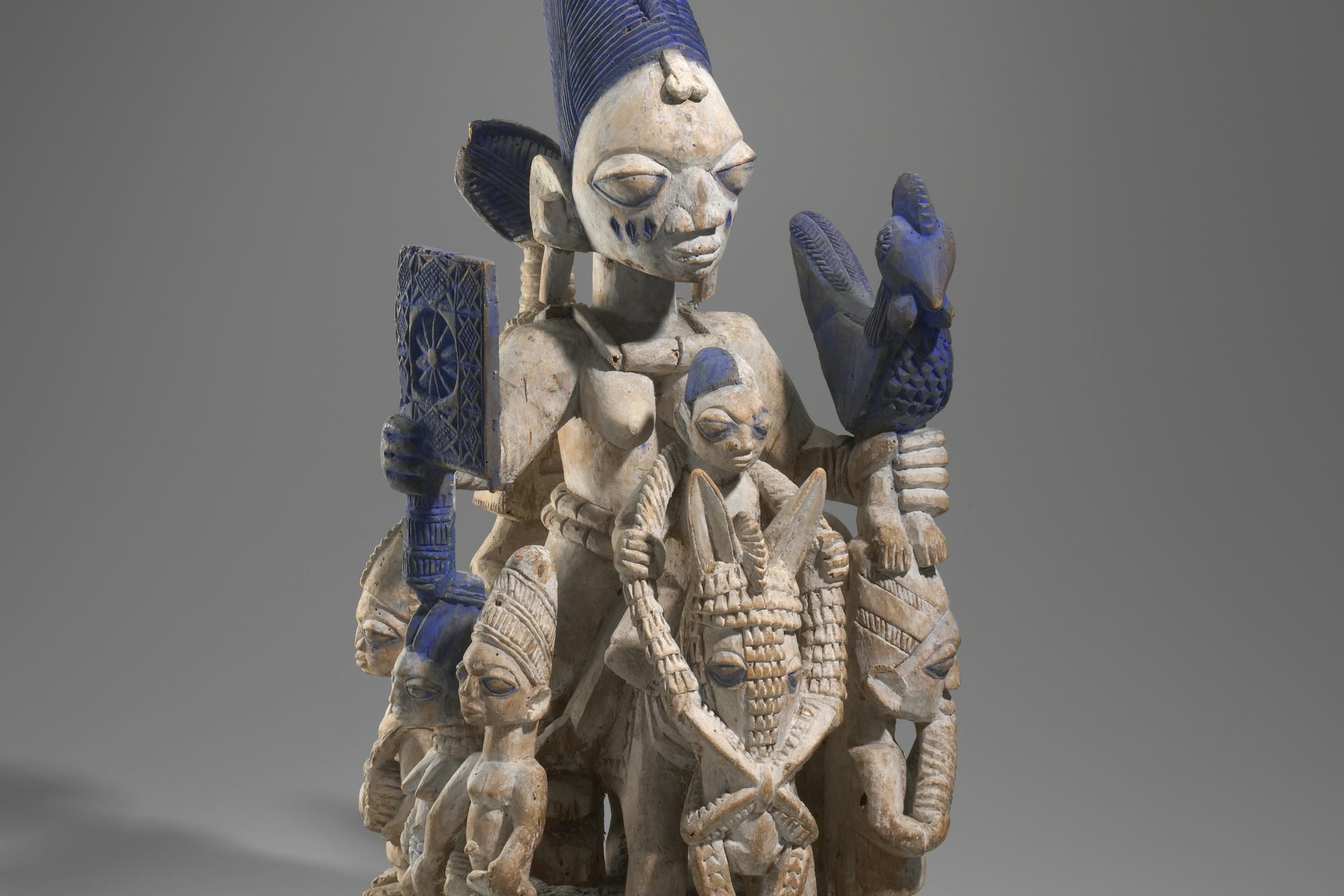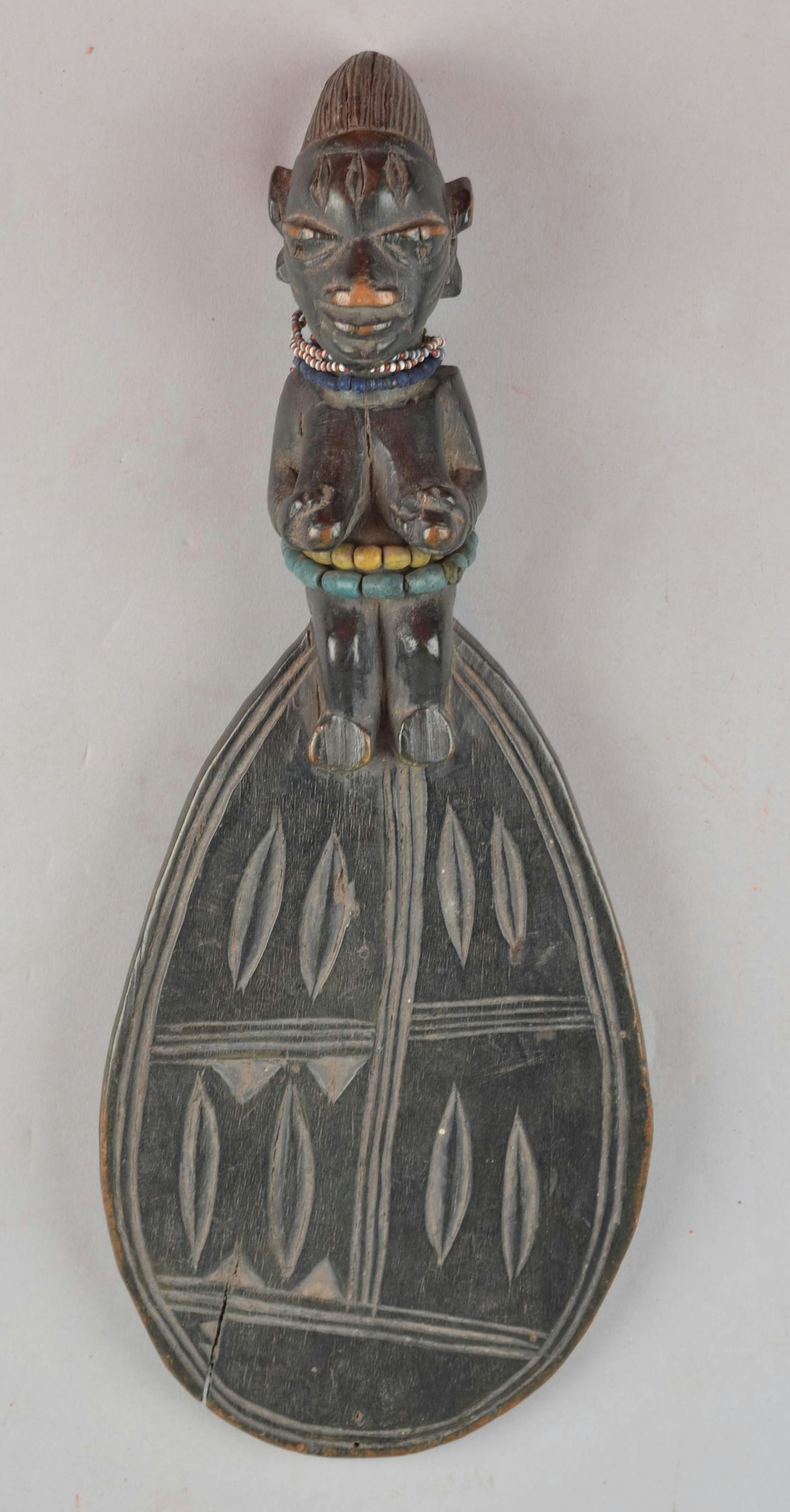Oya

An equestrian shrine figure (Ojúbọ Ẹlẹ́ṣin) depicting a priestess of Ọya, by Yoruba artist (1920 - 1940).
Yale University Art GalleryPublic DomainOverview
Oya—also called Yansan in some traditions—is the Yoruba goddess of hurricanes, tornadoes, and the Niger River. She is the favorite wife of the thunder god Shango. Oya’s worshippers revere her power but also fear her wrath, as she is known to send hurricanes and tornadoes to destroy those who offend her.[1]
In addition to her role as a weather oriṣa (god), Oya is also the guardian at the gates of death; she protects souls on their journey to the afterlife.[2] As the gatekeeper between worlds, she has a special relationship with the ancestors.[3] Despite her association with death, Oya is also a goddess of rebirth, as “things must die so that new beginnings arise.”[4]
In Yoruba tradition, Oya is closely associated with the buffalo, whose horns form the shape of a crescent moon—a symbol of female deities.[5] The buffalo is also a symbol of fertility and rebirth, mirroring Oya’s role as a goddess of rebirth. Oya sometimes manifests as the Red Buffalo Woman; in this guise, she is married to Ogun, the god of iron and hunters.
Pronunciation
English
Yoruba
Oya Ọya Phonetic
IPA
aw-yah ɔ̄.jā
Oya and Shango

A carved female figure, possibly a fan, for the cult of Oya, by Yoruba artist (n.d)
British MuseumCC BY-NC-SA 4.0There are several notable stories about the relationship between Oya and her husband Shango. One legend tells of how Oya came into possession of the magic that Shango used against his enemies—a powerful medicine that allowed him to spit fire from his mouth.
One day, Shango ate some of his magical substance and gave the rest to Oya for safekeeping. But instead of locking it away, Oya consumed the remainder and was therefore able to spit fire as well.
This made Shango angry. He threatened Oya, and the goddess ran away in fear, hiding herself with the sea deity Olokun.[6] Shango pursued Oya relentlessly; when he finally found her, he did battle with Olokun in an effort to reclaim his wife. Oya then fled to her sister Olosa, the goddess of lagoons.
When Shango found her again, Oya begged for forgiveness. Shango agreed to reconcile, but Oya was still afraid of him. This myth serves as an explanation for why Shango’s thunder and Oya’s stormy winds always go hand in hand: whenever Shango pursues his enemies, Oya flees to safety ahead of him.[7]